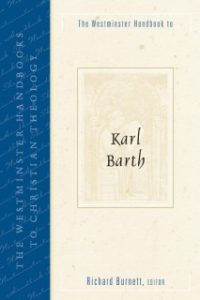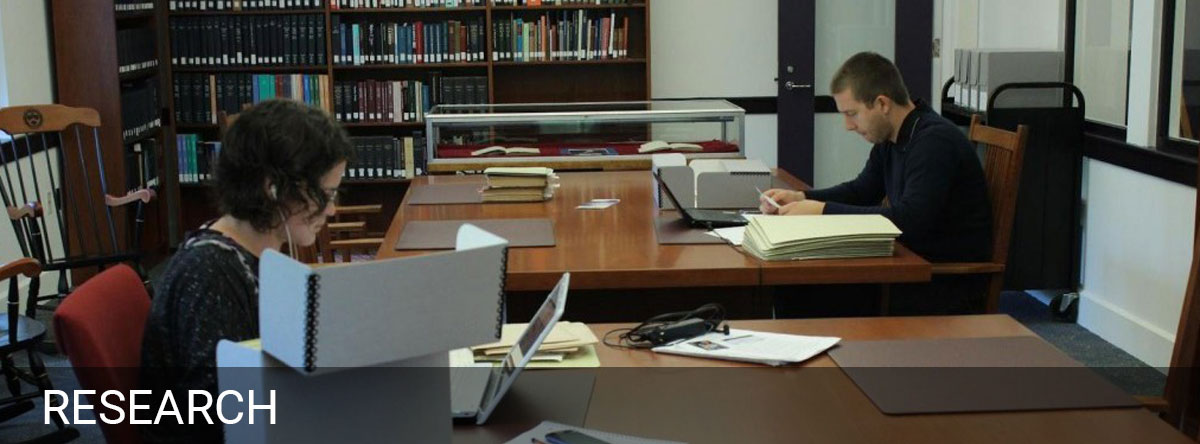 Burnett, Richard E. ed. The Westminster Handbook to Karl Barth (Louisville, KY: Westminster John Knox Press, 2013), 272 pp. $40.00 (paperback).
Burnett, Richard E. ed. The Westminster Handbook to Karl Barth (Louisville, KY: Westminster John Knox Press, 2013), 272 pp. $40.00 (paperback).
Reviewed by J. Scott Jackson (March 26, 2019)
The theologically curious, many of whom have read little if any of Karl Barth’s work, occasionally will ask where the great Swiss theologian discusses a particular topic. Anyone who has spent some time poring through Barth’s writings knows how tricky such questions can be. Rather than sending these interlocutors scrambling to the now numerous standard, introductory works or to the imposing fine print in the index of the Church Dogmatics, I might rather point them to one or two articles in the Westminster Handbook to Karl Barth, ably edited by Richard Burnett of Erskine Seminary.
This volume aims to define and contextualize the key terms, ideas, and figures that shape Barth’s work, and to do so concisely. Within the limitations that inevitably hamper such an ambitious project, it succeeds remarkably well. Moreover, as a compilation of short pieces from an international team of 65 scholars, the Handbook serves not only as overview of the key themes and concerns that permeate Barth’s daunting corpus, but also as a precis of the state of Barth studies in the early 21st century to date. Contributors hail from the United States, Germany, Great Britain, Switzerland, Canada, New Zealand, and Croatia (the editor himself acknowledges the lack of contributions from thinkers from Asia, Africa, and Central and South America is a weakness of the text).
Articles in this text are written by established experts who have published on their respective topics—so, among many notable examples, there are essays by Bruce McCormack on “Revelation,” Kimlyn Bender on “Church,” and by Kathryn Sonderegger on “Israel”—such that the articles often serve as an entree into a particular scholar’s own body of work. The research value of the book is enhanced by all-too-brief bibliographies at the end of each entry, and a summary bibliography at the end; Barth’s works in German and in English translation are also listed near the front.
An exhaustive compendium of the Barthian lexicon, Burnett admits, is impossible in one slim volume, but it does achieve an admirable comprehensiveness, nonetheless. There are nearly 100 articles—from “Actualism” (Paul Nimmo) to “Worship” (Michael D. Bush)—ranging from 500 to 2,500 words. 19 of these articles, particularly those on issues of biblical interpretation and historical criticism, were authored by Burnett himself. As he points out, the breadth, scope, and depth of Barth’s corpus can be intimidating, not only for the neophyte taking her first plunge into the material, but also for seasoned scholars seeking to summarize complex theological topics in such a compressed format. Nonetheless, as Burnett quips, “Life is short. Barth is long,” (p. x), and a roadmap such as this one might help the explorer on the long journey through the caverns of this theological oeuvre. A number of contributors reported that writing their assigned articles with such brevity was a singularly vexing task. Some writers approach their topics more genetically, whereas others take a more synthetic approach; many writers touch upon not only bellwether works such as The Church Dogmatics and the second edition of Romans, but they also draw upon early lectures, sermons, and other material published and/or translated in recent decades.
A few articles are devoted to other theologians whose work shaped, impacted, or intersected with Barth’s work directly, including Luther and Calvin, Harnack and Hermann, and Bultmann and Brunner. However, there are no articles on younger contemporaries such as Bonhoeffer or Gollwitzer. The authors that address Barth’s theological Sitz im Leben by and large share the consensus of most recent researchers that Barth’s vexed relationship with the 19th century’s mixed theological legacy was complicated. For example, Christophe Chalamet, in a piece on Wilhelm Hermann, notes the lines of continuity between Barth and his esteemed teacher that persisted throughout his dialectical and dogmatic work: thoroughgoing Christocentrism, the independence of theology from philosophy and the natural and social sciences, and the self-authenticating character of Christian faith.
The more thematic articles are, quite naturally, weighted toward Barth’s overriding preoccupations; I count at least eight articles that focus directly on the person and work of Jesus Christ (and many more that do so indirectly), and a bevy of pieces pertaining to Barth’s actualist theological ontology, his aversion to speculative natural theology, and his dynamic view of Biblical inspiration and interpretation. For example, Garrett Green, in his entry on “Faith,” insists on the event character and ineluctably mysterious nature of the human encounter with God.
The volume on the whole focuses on exposition of Barth’s work rather than plumbing the contemporary issues and controversies it has spawned. Nonetheless, one does find words of critique. For example, in a perceptive and otherwise appreciative article on “Christian Life,” Joseph L. Mangina echoes a common criticism that Barth’s ethics is sometimes deemed lacking in the arena of concrete application: “At times one longs for him to descend from those long, looping trains of thought in the large print, and even from the riches of Scripture in the small print, into the realm of the empirical and practical,” (p. 30). Such critiques notwithstanding, several articles do situate Barth’s theological and ethical commitments within the matrix of the practical socio-political struggles of his day. Thus, in his entry on “Liberalism,” Georg Pflederer argues, “Barth’s antiliberalism and antimodernism played a key role in the fight against National Socialism and its theological devotees,” (p. 139). Yet Pflederer also shows that such a stance of “antipluralism” was rooted not in a wholesale rejection of the modern Protestant tradition but rather stemmed from the early (pre-dialectical) Barth’s intensive engagements with socialist praxis during his Safenwil pastorate. Moreover, Stephanie Mar Smith (“State”) shows that Barth views civil authority—not uncritically, to be sure—but positively as a structure intended to preserve the freedom of the church to proclaim the Gospel—a role that was viciously abrogated by the idolatries of National Socialism. As someone interested in such matters, I would have liked to see more articles exploring Barth’s political theology and practical engagements, a fertile field for much contemporary research. Articles by George Hunsinger (“Justification”) and Timothy Gorringe (“Freedom”), two scholars who have explored the relationship between Barth’s dogmatics and his politics in depth, do not focus on these issues in this volume. Gorringe does, however, argue that Barth conceives God as identifying with the oppressed in their concrete struggles, though the human quest for liberation inevitably falls short of this ideal: “Barth thought the revolutionary could be an agent of God, but revolutions cannot accomplish real freedom,” as the fundamental existential problem of sin cannot be overcome through social struggle alone (p. 79).
This Handbook would serve as an excellent resource, especially for graduate students (or advanced undergraduates) pulling together a term paper on Barth’s theology as well as for more advanced scholars who seek a refresher. A pastor friend, who has read a decent amount of Barth, tells me he has found the volume full of grist for the mill of his sermon preparations. One caveat, though: as the articles can be dense at times, given the complexity of the material, I would not necessarily recommend this book as the text best suited to be the student’s initial foray into Barth’s work. For that task, the many fine surveys now available, coupled with focused primary text selections, might still make the best route for the beginner—though there is much serviceable material here to use in tandem with other introductory texts. Still, the Handbook is a superb resource for the reader with at least a little background in Barth and modern theology.
J. Scott Jackson, Independent Scholar
The views expressed here are strictly those of the author; they do not necessarily represent the views of the Center for Barth Studies or Princeton Theological Seminary.


